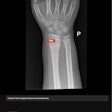
The vast potential for artificial intelligence (AI) in radiology cannot be fully tapped without significant short-term investment in supporting IT infrastructure. That's the view of Prof. Fabian Kiessling, PhD, from Aachen, Germany, in a blog posted on 15 June by the European Society of Radiology.
In the post, he evaluated the use (or lack thereof) of electronic health records, AI, and radiomics within European health systems, which have been slow to adopt digital technologies for routine clinical use. He emphasized the need to educate IT specialists and build crucial IT infrastructure in order to run modern medical software.
"Certainly, significant investments are required in the short term," wrote Kiessling, a professor of experimental molecular imaging at RWTH-Aachen University. "However, some sites have already demonstrated that once successfully implemented, digitalized medicine will save costs in the health system and reduce administrative workload, thus giving physicians more time for their patients."
Kiessling and his team performed an analysis of sites and countries that have adopted the use of algorithm-driven technologies. A few key learnings stood out to them:
- Poor consumer design of the IT tools increased (rather than decreased) the workload of medical personnel.
- Medical routine data was heterogeneous and difficult to integrate, making it infeasible to train AI solutions.
- Medical disciplines had a defensive or territorial mindset that inhibited their willingness to share data.
- Many sites and countries were slow to adopt electronic medical records.
- There is increased concern, especially legal concern, regarding patient privacy.
In addition, sites may have unclear approval processes for AI-based software and imprecisely defined documentation standards for many types of medical data, Kiessling noted. Furthermore, in many countries, only a small amount of the funds available for data analysis research has been invested in IT infrastructure.
"Indeed, the latter may rather be an implementation task, which is time-consuming and costly; however, it will form the essential backbone of any clinically functionalizing system," he wrote in the ESR's AI Blog.



















